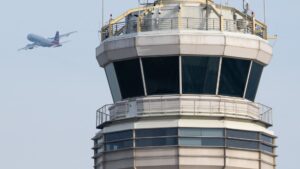Elon Musk, Starlink, and Air Travel: A Complex Intersection of Innovation and Safety Concerns
In a bold announcement this past Thursday, Elon Musk revealed his intention to submit Starlink satellite internet terminals to the Federal Aviation Administration (FAA). While Musk alleges that existing FAA technology poses risks to air travel safety, major airline executives have voiced contrary opinions, indicating they see no such threats. This surprising divergence in views raises questions about the future of aviation safety and the technology that underpins it.
What’s Behind the Claims?
Musk, whose influence extends beyond the tech sphere into politics—having been a close advisor to former President Donald Trump—took to his social media platform, X, to share his concerns. However, the lack of presented evidence to substantiate his claims has left many in the industry skeptical. While it’s not uncommon for tech entrepreneurs to clash with regulators over safety and innovation, the stakes are particularly high where public safety is concerned.
FAA Technology Under Scrutiny
Despite Musk’s assertions, major airline executives expressed confidence in the FAA’s existing technology. In fact, a source from the FAA stated that they have been exploring the use of Starlink technology to enhance communication and reliability at remote operational sites, specifically mentioning ongoing tests in Atlantic City, New Jersey, and Alaska. These tests come on the heels of the FAA’s consideration of transitioning from traditional communication systems to more modern solutions.
Interestingly, reports surfaced that the FAA is nearing a decision to replace its contract with Verizon for new air traffic control technology in favor of Musk’s Starlink—an escalation that could redefine the aviation communication landscape. Musk claimed that the existing Verizon system is deteriorating rapidly. However, Verizon swiftly countered, directing blame towards L3Harris, which actually manages the FAA’s current systems. A lack of clarity in the sources of communication technology adds to the confusion surrounding these developments.
Conflicts of Interest
The implications of Musk’s dual roles—as CEO of SpaceX and as a prominent figure tied to the Trump administration—have raised flags among certain lawmakers. Senator Ed Markey of Massachusetts expressed concerns about potential conflicts of interest surrounding the FAA’s regulatory approach and Musk’s technology offerings. This concern echoes louder due to the recent layoffs within the FAA, although officials assured the public that crucial safety functions remain staffed.
Air travel reform has been a long-standing request from the airline industry, particularly following a troubling period marked by delays and inefficiencies attributed to aging systems. "The government needs to do the same in an organized and timely way," said Airlines for America, representing various U.S. carriers yearning for improvements.
Call for Modernization
With air travel demand reaching unprecedented heights post-pandemic, modernization of air traffic control systems is no longer a future initiative; it has become an urgent necessity. The tragic collision involving an American Airlines regional jet and an Army Black Hawk helicopter last month underscores the critical need for superior air safety technology. This incident marked a somber milestone, reminding us of the importance of both innovation and vigilance in ensuring passenger safety.
Advocacy for additional funding for air traffic control modernization has gathered momentum, with numerous industry groups and labor unions appealing to lawmakers to prioritize these updates. As we look ahead, the decisions made by the FAA and the actions taken by giants like Musk will shape the trajectory of the aviation industry.
Conclusion
As the intersection of technology and air travel safety becomes increasingly complex, informed dialogue and transparent decision-making will be vital. At the Extreme Investor Network, we continue to monitor these developments, providing you with insightful analyses and updates that matter. The technological landscape in aviation is changing rapidly, and staying informed means being prepared for the future of air travel, whether it’s through innovation like Starlink or the modernization of existing systems.
Join us as we navigate these critical changes together, because at Extreme Investor Network, we believe informed investors make empowered decisions.

